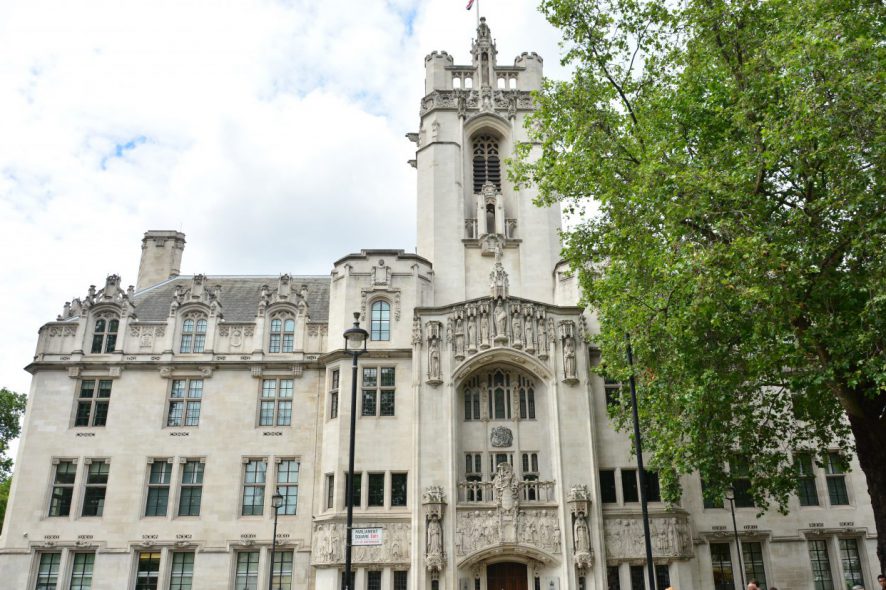United Kingdom Supreme Court: The Bench of Lord Reed, President and Lord Lloyd-Jones, Lord Sales, Lord Hamblen and Lord Stephens, held that in general, a person under criminal investigation has, prior to being charged, a reasonable expectation of privacy in respect of the information that relates to that investigation.
Central Issue
Whether a person under criminal investigation has, prior to being charged, a reasonable expectation of privacy in respect of information relating to that investigation?
Bloomberg LP is the appellant and ZXC, is the claimant.
The claimant’s claim was with regard to misuse of private information arising out of an article published by Bloomberg in 2016 relating to the activities of X Ltd. in a particular country for which the claimant’s division (foreign state) was responsible and the said activities had been the subject of a criminal investigation by a UK Law enforcement body (UKLEB) since 2013.
The information in the Article was almost exclusively drawn from a confidential letter of request sent by UKLEB to the foreign state.
Expectation of the Claimant
Claimant had a reasonable expectation of privacy in information published in the Article and in particular the details of the UKLEB investigation into the claimant, its assessment of the evidence, the fact that it believed that the claimant had committed specified criminal evidence and its explanation of how the evidence it sought would assist its investigation into that suspected offending.
Hence, claimant submitted that Bloomberg misused his private information by publishing the Article and sought damages and injunctive relief.
Issue wise Court’s Opinion
-
Whether the Court of Appeal was wrong to hold that there is a general rule, applicable in the present case, that a person under criminal investigation has, prior to being charged, a reasonable expectation of privacy in respect of information relating to that investigation?
Supreme Court expressed that for some time, Judges have voiced concerns as to the negative effect on an innocent person’s reputation of the publication that he or she is being investigated by the police or an organ of the state.
“…the person’s reputation will ordinarily be adversely affected causing prejudice to personal enjoyment of the right to respect for private life such as the right to establish and develop relationships with other human beings.”
Bench accepted that the status of the claimant as a businessman actively involved in the affairs of a large public company means that the limits of acceptable criticism of him are wider than in respect of a private individual. However, it does not mean that there was no limit, nor does it mean that this circumstance is determinative.
“The ordinary conclusion in relation to the effect of publication of information that an individual is under criminal investigation is that damage occurs whatever his characteristic or status.”
Court found that the information contained an attack on the claimant’s reputation which attained a level of seriousness sufficient for Article 8 of the ECHR to come into play. There was no prejudice to personal enjoyment of the right to respect for private life caused by the manner of attack on the claimant’s reputation.
Hence, this Court found that the Courts below were correct to hold that, as a legitimate starting point, a person under criminal investigation has, prior to being charges, a reasonable expectation of privacy in respect of information relating to that investigation and that in all the circumstances the present case is the one in which that applies and there is such an expectation.
-
Whether the Court of Appeal was wrong to hold that, in a case in which a claim for breach of confidence was not pursued, the fact that information published by Bloomberg about a criminal investigation originated from a confidential law enforcement document rendered the information private and/or undermined Bloomberg’s ability to rely on the public interest in its disclosure?
For the said issue, neither the Judge nor the Court of Appeal held that the fact that the information originated from a confidential document rendered the information private or meant that Bloomberg could not rely on the public interest in its disclosure.
Elaborating further, the Court added that if the information is confidential that is likely to support the reasonableness of an expectation of privacy.
In the instant case, there was a general public interest in the observance of the duties of confidence and a specific public interest in maintaining the confidence of the Letter of Request so as not to prejudice the criminal investigation. As was stated in the Letter of Request, disclosure of its contents “will pose a material risk of prejudice to a criminal investigation”. As a suspect in the investigation, the claimant also had a particular interest in avoiding prejudice to, and maintaining the fairness and integrity of, that investigation.
-
Whether the Court of Appeal was wrong to uphold the findings of Nicklin J that the claimant had a reasonable expectation of privacy in relation to the published information complained of, and that the article 8/10 balancing exercise came down in favour of the claimant?
Lastly, the Court held that the said ground of appeal was dependent upon Bloomberg establishing that the Court of Appeal erred in law on Issues 1 and 2, which it had not done, hence the Judge’s decision in relation to balancing exercise did not require any interference.
Therefore, the above appeal was dismissed. [Bloomberg LP v. ZXC, (2022) 2 WLR 424, decided on 16-2-2022]






